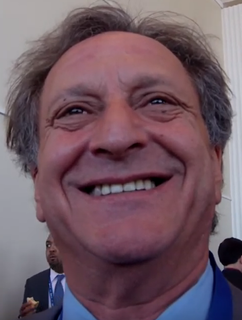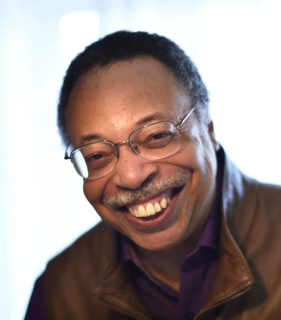A Quote by Clint Smith
We tend to think of racism as this interpersonal verbal or physical abuse, when in truth, that is only one way that racism manifests itself. The reality of contemporary racism is that it while it is ubiquitous, it is often invisible, subsequently making it more difficult to name and identify.
Related Quotes
You cannot be responsible for Jim Crow. You can not be responsible for racism. This is much more a problem for the person exercising racism.You are confronted with the reality of racism when you go in the streets, when the eyes of others come upon you. [James] Baldwin goes back with you to all the experiences you went through and gives a name to them, and explains why it is like this.
Another response to racism has been the establishment of unlearning racism workshops, which are often led by white women. These workshops are important, yet they tend to focus primarily on cathartic individual psychological personal prejudice without stressing the need for corresponding change in political commitment and action. A woman who attends an unlearning racism workshop and learns to acknowledge that she is racist is no less a threat than one who does not. Acknowledgment of racism is significant when it leads to transformation.
And what is the Republican solution to these outrageous [racial] inequalities? There isn't one. And that's the point. Denying racism is the new racism. To not acknowledge those statistics, to think of that as a 'black problem' and not an American problem. To believe, as a majority of FOX viewers do, that reverse-racism is a bigger problem than racism, that's racist.
The way racism works in Canada, it's very subtle. You may feel you're a victim of racism or have experienced racism, but you can't necessarily prove it - unless you get a [white] friend to go check out that rental, go check out that job, whatever. Unless you're willing to really dig to prove you're a victim of racism, it might be difficult to do that. And so what you're dealing with then is feeling, it's emotion.
Critical Race Theory offers of discrimination frameworks as ways of understanding and eradicating racism. The focus on "discrimination" as the way to understand racism in the US has meant that racism is considered a question of discriminatory intentions - whether or not somebody intentionally left someone out or did something harmful because of their biased feelings about a person's race. This focus on individual racists with bad ideas hides the reality that racism exists wherever conditions of racialized maldistribution exist.






































